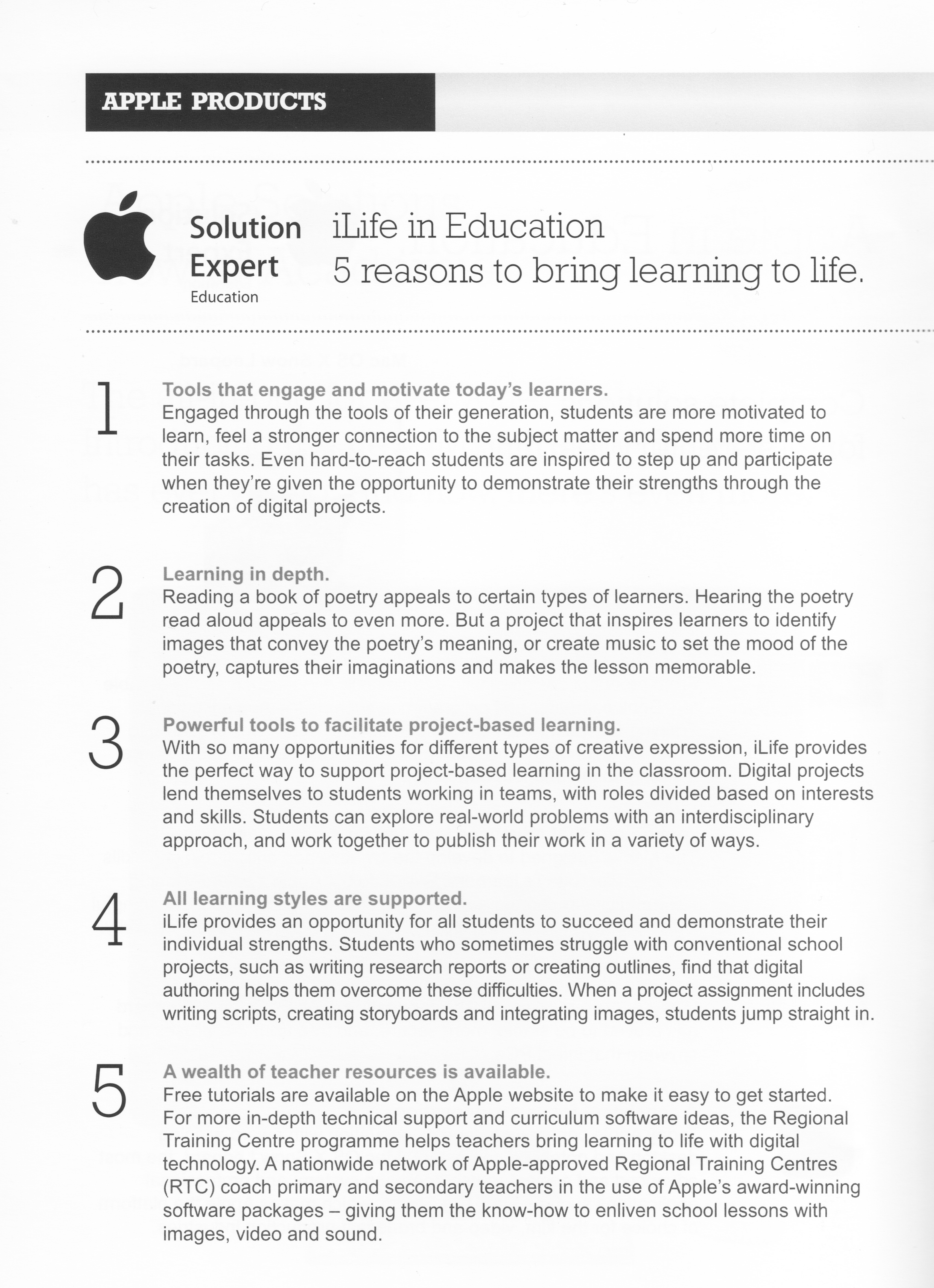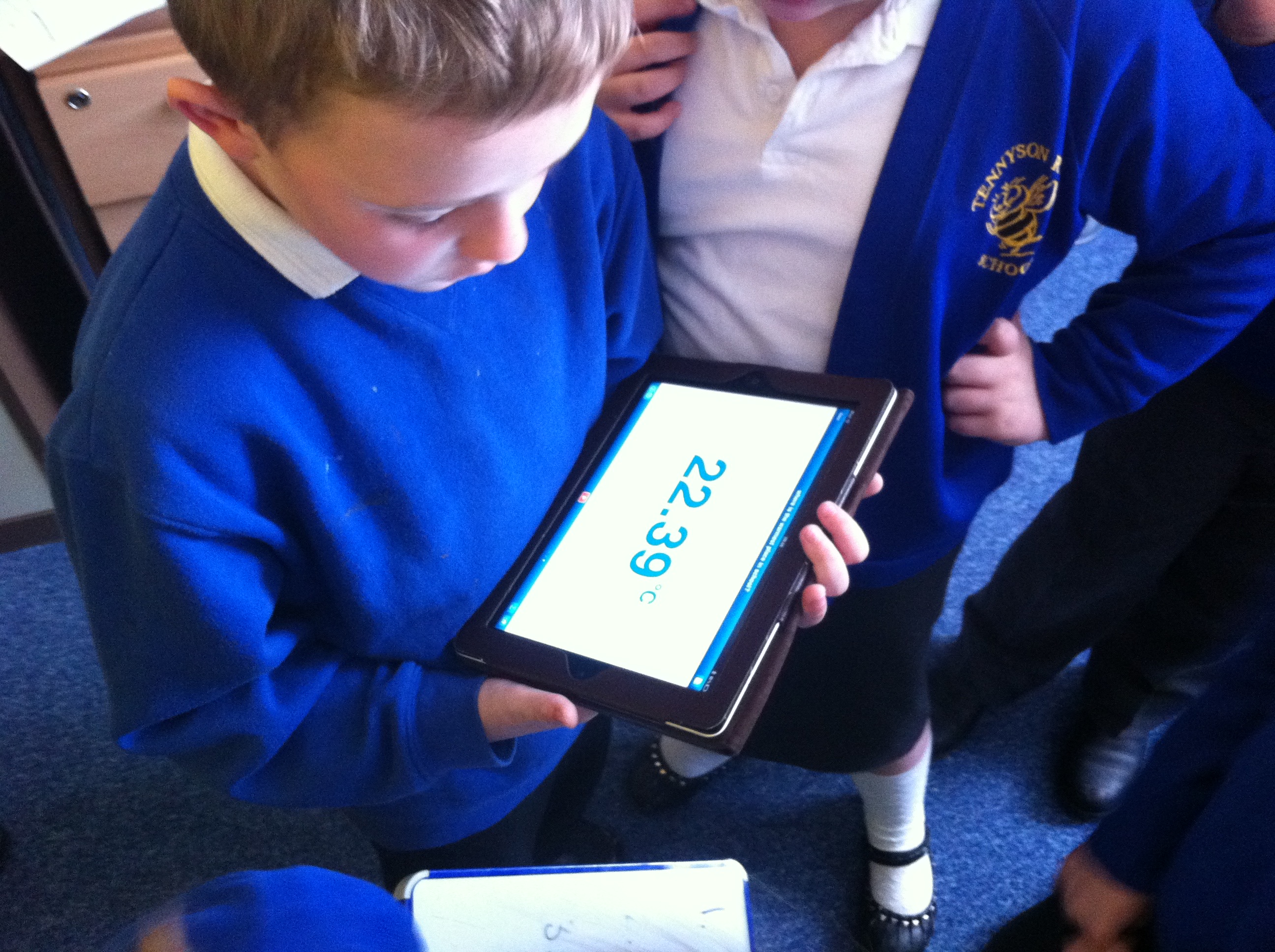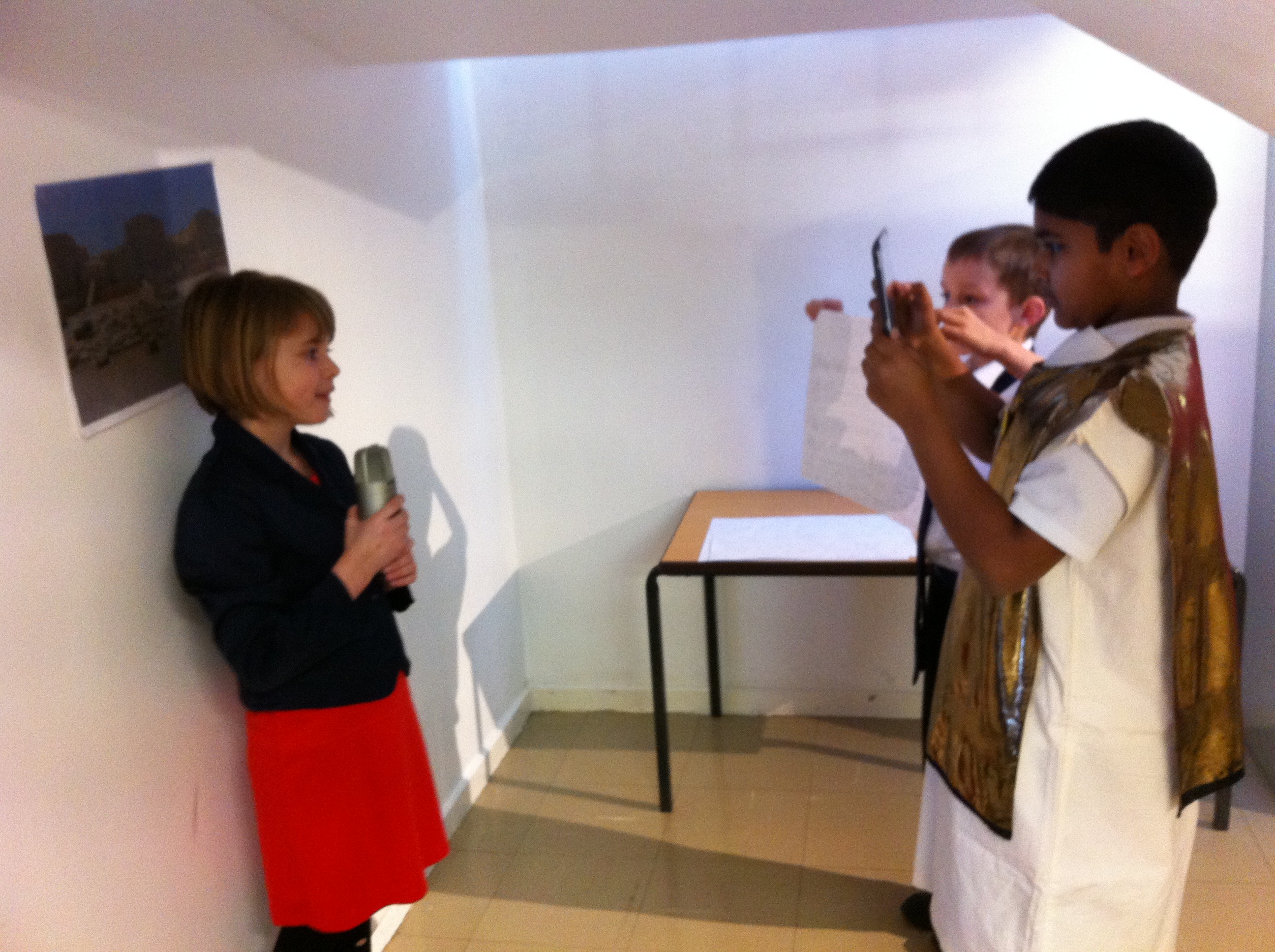
11 Sep Why Give Me Five When You Can Give Me Ten?
Since the first edition the Educator in 2009, many things have changed, as you would come to expect when the primary focus is on the heady fusion of technology in education.
Windows XP has been and largely gone although the price tag for upgrades still remains; macOS has moved on six versions from Snow Leopard and the price tag is nowhere to be seen because of Apple’s commitment to a free operating system and core apps for productivity and creativity. iPad was still under wraps in Cupertino to be released almost a year later – without a camera.
Interestingly as I flicked through the magazine, on one page in The Educator Edition 1 was an article entitled “iLife in Education” which really caught my eye.


However, the emphasis on all of these is the use of the present tense. It is about using technology to achieve something now.
Great technology should do all of that and more. Imagine a classroom as a stage. Great technology should enable a subtle but deliberate shift of focus away from the technology itself on centre stage and disappear into the background or even into the wings to be replaced in the foreground by the deliberate development of key skills and attributes. Sometimes these are referred to as “soft skills” but they are anything but soft. Such attributes are not just relevant now but have a far greater remit and responsibility. Great technology should prepare learners for the future. For every aspect of life; for the modern workplace; for the modern real and virtual space.
At this point I need to apologise. I’m sorry. Really sorry. For this article I tried, I really tried. I really tried NOT to incorporate any reference to food, lest I become known as something of an epicurean one trick pony (with an unsettling tendency to mix strange metaphors). After a pedagogical pilgrimage round the internet and sifting through the myriad of mixed messages, I propose the following. (Cue drum roll)
“Top Ten Tenth Edition Attributes For The Modern Workplace”
Strike that. Better still…
“A Salmagundi of Skills”
- Positivity – an attitude and an ability to take the initiative
- Communication – being a good listener before being a good talker.
- Collaboration- working respectfully with other people whether as a leader or as a subordinate
- Organisation – of yourself, your thoughts, towards a clear outcome
- Articulation – being able to structure your thoughts and express them confidently and clearly Management – being able to manage yourself; your time; your resources; others.
- Flexibility – an ability to adapt to change
- Resilience – being able to recover from difficulties and bounce back
- Willingness – to learn and stay curious
- Critical thinking – analysing and evaluating from different perspectives to form a judgment


I would like to end with one of my favourite images from the classroom. Pupils were creating a compelling breaking news report about the discovery of the tomb of Tutankhamun.
It depends where your focus falls. Do you see three pupils dressed up? Do you see an iPad? Or do you see 10 key skills for life with everyone playing their part towards a powerful outcome?
Long live great technology. Long live great learning and teaching.
Please contact Paul Hutton at paul.hutton@academia.co.uk


